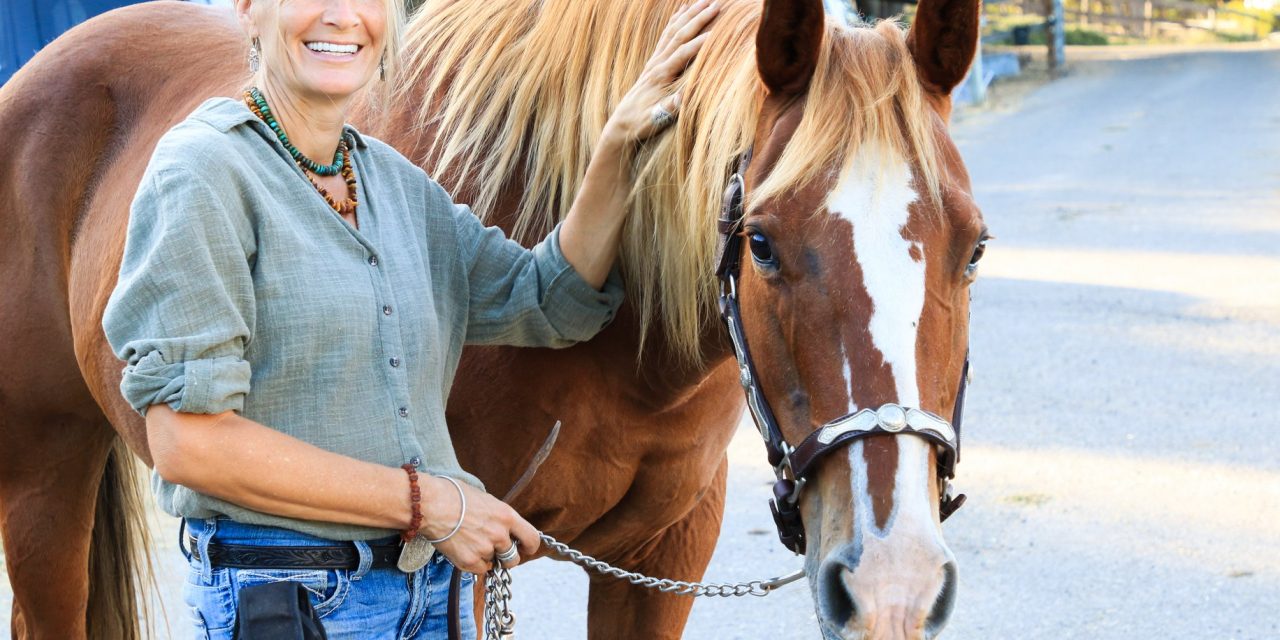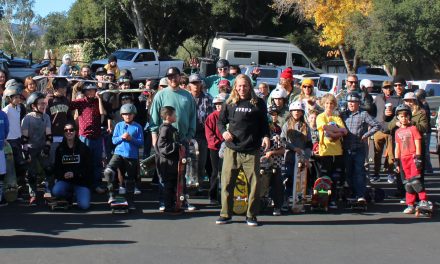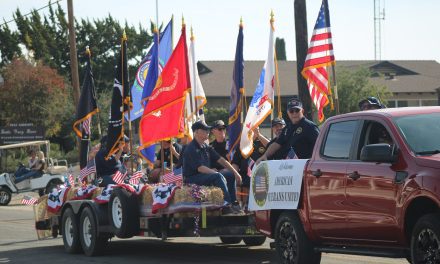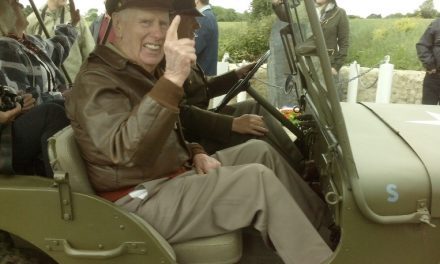Tammy Golden works mostly with horses, but has always maintained connections with all animals
By Pamela Dozois
Contributing Writer
Unspeakable cruelty has been perpetrated on animals down through the centuries to the present. Many people believe that animals are not sentient beings with individual thoughts, feelings, and personalities. It is their contention that animals can’t feel pain or become emotionally disturbed or that communication with each other, let alone humans, is very limited. Thankfully, science is becoming more aware of the fact that not only animals but plants really do have the capability of communication. We as humans just have to learn how to listen.
Santa Ynez Valley resident Tammy Golden is an animal intuitive healer, behavior consultant, and herbalist who works mostly with horses who have psychological, emotional, behavioral, and physical issues. She listens to them through what she calls a universal language: their body language combined with energy.
Golden’s job is her passion. She has always cared for animals on a deeper level, from rhinos to feral cats. Presently she works mostly with horses.
“I’ve been handling animals since I was about 4 years old and naturally knew how to listen to them,” said Golden. “The first animal I rode as a child was a giant Galapagos tortoise. I rode around on his back, and I didn’t want to leave. It was just a wonderful experience.”
She moved on other animals a few years later.
“When I was about 8 years old, I started making money by training our neighbor’s dogs,” she explained. “Working with animals is something I can’t say no to. I can’t work in a store or on a computer; I need to be outside in nature, up close and personal with something furry, feathered, or scaled.”
After that, Golden got experience with cats.
“My first cat was feral. My neighbor was overloaded with kittens, and she said if I could catch the mother, I could keep her. That was all it took,” she said. “Interestingly, I was not interested in the kittens, I wanted the mother. I caught her, took her home and got her calmed down and socialized. Over the next few years, she actually taught me how to communicate with cats, learning cat language. I learned some things from other trainers, but for the most part, I’ve learned from listening to the animals themselves.”
As a youngster, Golden had a dream of becoming an animal trainer and when she grew up she went to work at a wildlife theme park in northern California but quickly discovered it wasn’t what she thought it would be.
“It was a terrible place for animals, and I quickly moved on, getting myself fired because I refused to beat a baby camel,” she said. “I am not a proponent of animal training colleges because they treat animals not as sentient beings but as things, and that’s not right.”
Returning to Santa Barbara, Golden has worked with local animal sanctuaries and with individuals who want to create a better relationship between themselves and their horse.
“Horses are the most in need of help, I find, because abuse is normalized and overlooked in the horse industry,” said Golden. “There is no protection for horses. Most people have traditions about handling horses that are often cruel, often without people realizing what they are doing is cruel, starting out wrong and escalating into something where the horse doesn’t trust people anymore.
“People think that punishment is a way to fix a problem. In reality they are causing the animal just to fear you. I’m trying to educate people that if they allow the horse to speak with his body, to say, ‘I don’t like something or I do like something’ and how to respond in a proper way that the horse can understand, the outcome is better for people and horses. You are setting up a conversation between you and your horse — not an ‘obey me or else’ attitude.”
Golden’s method is to create a friendly environment where the horse feels comfortable and secure enough to engage with her in a form of communication.
“While every situation is different, I can give one example of what it looks like when I work with a horse,” she said. “It’s actually more like play. I offer an invitation for the horse to engage. I take on the body language and demeanor of the herd matriarch, which is the most trusted and looked up to member of the herd, a very motherly figure. Horses understand and see the mother movements I am making and will respond in all kinds of ways that help me to know what’s going on inside of them. This is always done in an open environment without any kind of physical restraints or round pen to limit the movements of the horse.
“There is never any need to show dominance or be the alpha as these ideas are foreign to horses. I seek to become the trusted friend that a horse can feel safe talking to. Meanwhile, I am always watching and listening to their body language and feeling their energy.”
Golden’s work with horses has inspired her to pursue another goal.
“I am hoping at some point to open a healing center for horses and other animals where people can come, in a quiet and natural environment and learn how to communicate with their animals, a place to heal animals that are in such bad shape that they can no longer be around humans,” she said.
Golden has four grown children: a son who is a local ferrier, a daughter in Washington who practices ancient Chinese medicine, a son who is a prison guard and another daughter who writes, illustrates, and animates comic books.
“My main goal is to change people’s perspectives about the other beings with whom we share this planet,” said Golden. “Communication is everything! If we can’t communicate with each other and our animals, how can we have harmony in this world.”
To contact Golden, call (805) 245-4158.








